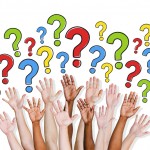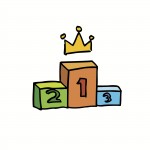
Mark Smith channels Ella Fitzgerald whilst reviewing evidence from the 2nd UK National Audit of psychological therapies, which compares CBT and generic counselling in the treatment of depression.
[read the full story...]
Mark Smith channels Ella Fitzgerald whilst reviewing evidence from the 2nd UK National Audit of psychological therapies, which compares CBT and generic counselling in the treatment of depression.
[read the full story...]
Jasmin Wertz summarises the recently published IMPACT trial, which found that CBT, short-term psychoanalytical psychotherapy and brief psychosocial interventions (psychoeducation) were all equally effective in treating depression in children and young people.
[read the full story...]
Patrick Kennedy-Williams highlights a recent opinion piece by Pim Cuijpers, which summarises what we know and what we don’t know about the efficacy of psychotherapies for adult depression.
[read the full story...]
Andrew Shepherd appraises a study of the long-term outcomes of psychodynamic therapy and cognitive-behavioral therapy in social anxiety disorder, which finds both therapies are efficacious in treating social anxiety disorder in the short- and long-term.
[read the full story...]
I had actually heard about this Danish study, published recently by Poulsen et al. (2014) in the American Journal of Psychiatry, before it landed in my inbox. The findings are interesting because they highlight the debate surrounding the comparative efficacy of psychological treatments. What is most striking though, is how the study itself challenges the [read the full story…]

If a treatment is powerful enough to have a good effect, then it’s powerful enough to have a bad effect. This is well recognised when it comes to medication, with strict regulations in place to ensure adverse outcomes are monitored and measured. By contrast, psychotherapy has never been as readily associated with the potential to [read the full story…]

There’s been a lot of chatter here in the woodlands about the role of cognitive behavioural therapy (CBT) in psychosis – what do service users think of it? Can it be used in place of antipsychotics for some people? Outside of the woodlands, CBT for psychosis has also been generating a lot of attention: Does [read the full story…]

Previous meta-analyses in the field of depressive disorders have yielded mixed conclusions about which the most efficacious treatment is. Within the process of any therapy, there are universal features such as; the therapeutic relationship, rationale for treatment, a patient and therapist belief in treatment, a confidential and respectful space for the patient and so on. [read the full story…]

Non-directive supportive therapy (NDST) has been defined as “a psychological treatment in which therapists do not engage in any therapeutic strategies other than active listening and offering support, focusing on participants’ problems and concerns” (Arean et al., 2010). We know from research studies that there are many types of psychological therapy that work well in [read the full story…]